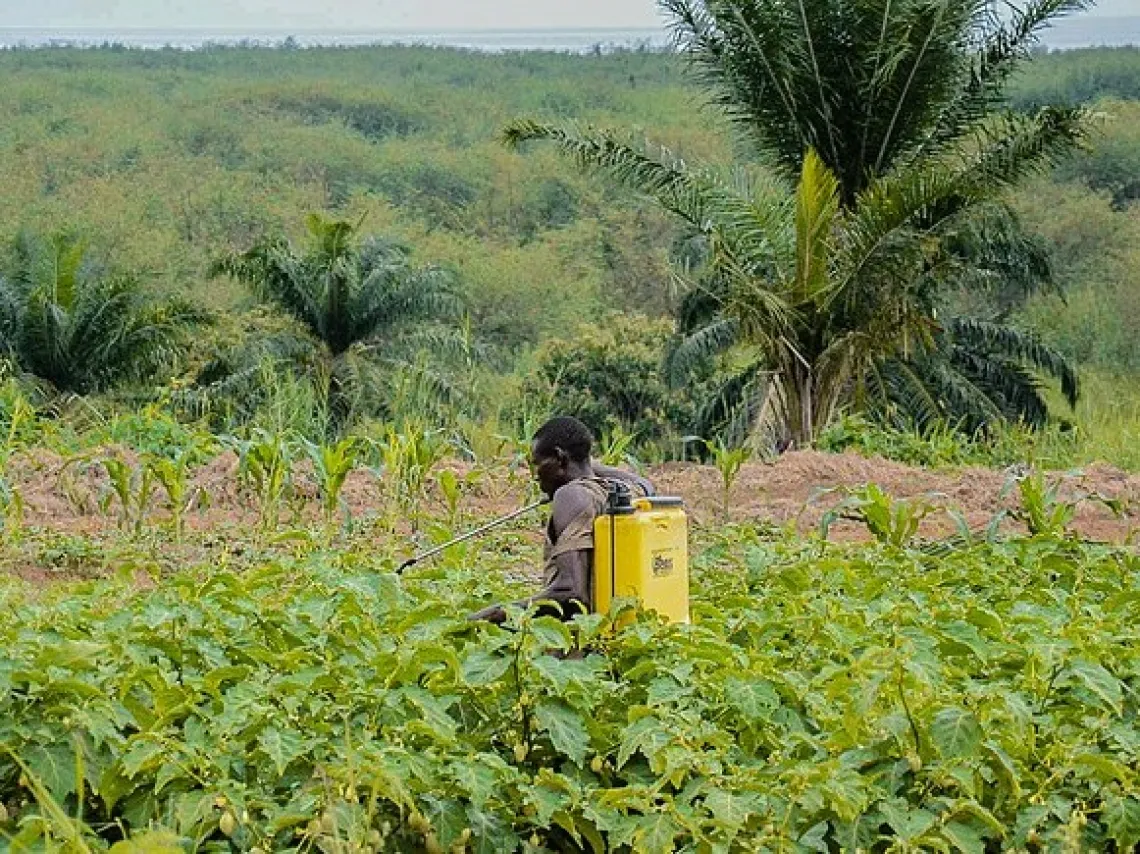Large-scale land acquisitions exacerbate local farmland inequities

A local vegetable farmer in Kigoma, Tanzania. Photo from Wikimedia Commons.
When commercial farming interests acquire large plots of land, local farmers can suffer from land loss and increased poverty, according to research recently published in the Proceedings of the National Academy of Sciences.
"Our paper is about when land rights of local, indigenous or traditional land-users come under pressure from commercial farming interests," said lead author Jonathan A. Sullivan, a post-doctoral research scientist in the School of Geography, Development & Environment.
Sullivan collaborated on the research with Cyrus Samii from New York University, Daniel Brown from the University of Washington, Francis Moyo from the Nelson Mandela African Institution of Science and Technology, and Arun Agrawal from the University of Michigan.
Using a household survey covering four pairs of land acquisition and control sites in Tanzania, the scholars used statistical methods that can attribute causality to characterize changes in land inequality and subsequent impacts on well-being.

They found evidence that large-scale land acquisitions, or LSLAs, in Tanzania lead to both reduced landholdings and greater farmland inequality among smallholders. Households in proximity to LSLAs are associated with 21.1% smaller landholdings.
"Aggregate estimates, however, hide that households in the bottom quartiles of farm size suffer the brunt of landlessness and land loss induced by LSLAs that combine to generate greater farmland inequality," the scholars wrote.
Additional analyses find that land inequality is not offset by improvements in other livelihood dimensions, rather farm size decreases among households near LSLAs are associated with no income improvements, lower wealth, increased poverty, and higher food insecurity.
Reinforcing Existing Inequities
The results demonstrate that land-use policies can systematically reinforce existing inequalities.
"We find that those with the least amount of land tend to be the target of these leases. Ultimately this process drives greater land inequality," Sullivan said. "In addition, those who lose do not appear to recover, suffering greater poverty and food insecurity."
The authors said the research raises attention to the issue that rural smallholders are systematically dispossessed by LSLAs where investors, ministry officials, and local elites can shape negotiations over land rights at multiple levels.
"Remarkably, we find this result in Tanzania where protection and security of customary land rights is arguably the most advanced in sub-Saharan Africa," the researchers wrote.
Implications for the U.S. and Land-Use Policies
What are the implications of these findings for the United States and the Southwest?
"In the context of the Southwest, this is most relevant to issues of water rights within the Navajo Nation who were recently denied by the Supreme Court their rights for in securing water access," Sullivan said. "While a distinct example from our article, they both show the use of legal mechanisms to secure access to natural resources for the “state” at the expense of historically underserved groups."
Sullivan said the article also highlights the importance of analyzing the inequitable outcomes of other land-use policies, such as protected areas, federal floodplain maps, or urban zoning.
"At the end of the day, land-use policies exist as legal and technical processes that can be manipulated by those with access, political or otherwise, that can contribute to unfair and unequal outcomes," Sullivan said. "This paper opens the door to more concentrated studies on these types of impacts that, eventually, can contribute to identifying measures that do not contribute to greater inequality."
##
Contact:
Jonathan Sullivan
School of Geography, Development & Environment
jasullivan@arizona.edu

